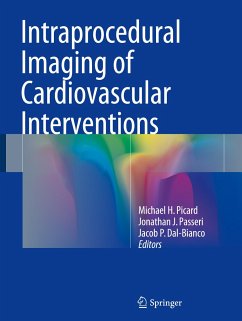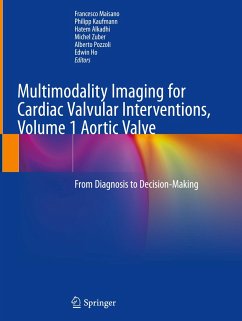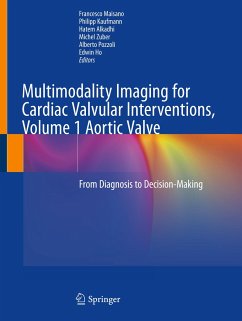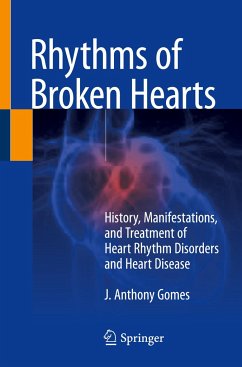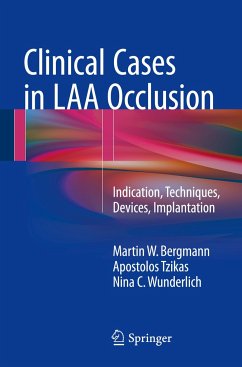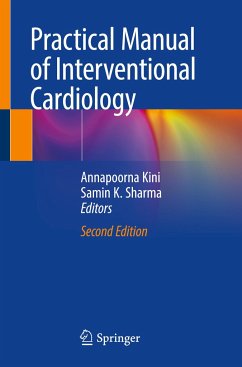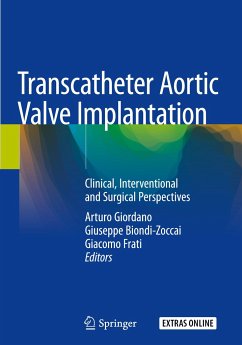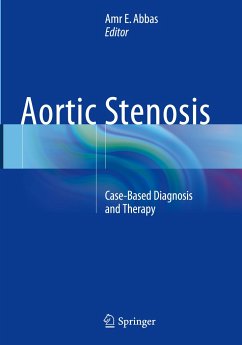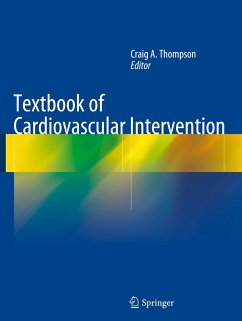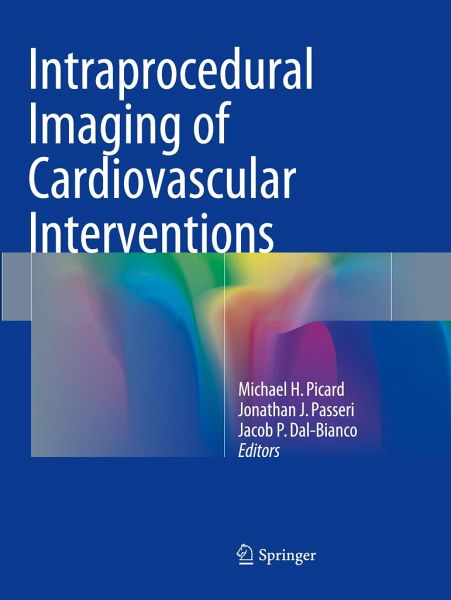
Intraprocedural Imaging of Cardiovascular Interventions
Versandkostenfrei!
Versandfertig in 6-10 Tagen
83,99 €
inkl. MwSt.

PAYBACK Punkte
42 °P sammeln!
T his book teaches the key knowledge required for the use of ultrasound to guide many catheter based cardiac therapies. While live CME courses are now covering this material there are very few textbooks on this topic. A unique aspect ofthis book is that it has many images to illustrate the teaching points. The use of minimally invasive treatments ofmany cardiac diseases especially by catheter based therapies and devices is arapidly expanding discipline in cardiology and radiology. Cardiac ultrasound particularlyechocardiography is utilized extensively to guide these therapies. Many echocardiog...
T his book teaches the key knowledge required for the use of ultrasound to guide many catheter based cardiac therapies. While live CME courses are now covering this material there are very few textbooks on this topic. A unique aspect ofthis book is that it has many images to illustrate the teaching points. The use of minimally invasive treatments ofmany cardiac diseases especially by catheter based therapies and devices is arapidly expanding discipline in cardiology and radiology. Cardiac ultrasound particularlyechocardiography is utilized extensively to guide these therapies. Many echocardiographers are being called uponto guide these therapies but they have not been trained in this unique use ofechocardiography.



